
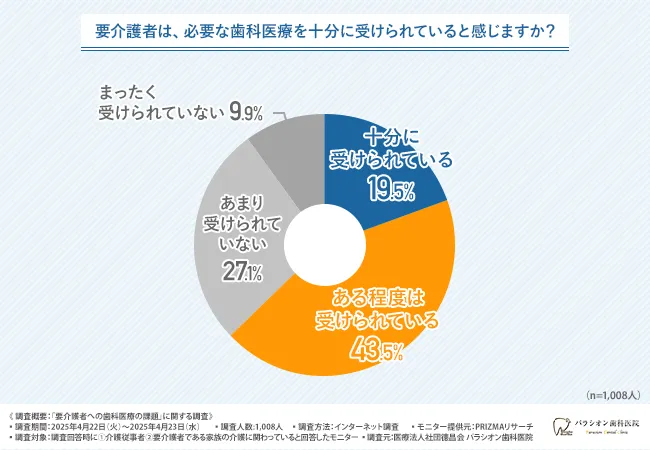
Study Highlights Urgent Need for Enhanced Dental Care Access for Elderly Patients
Study Highlights Urgent Need for Enhanced Dental Care Access for Elderly Patients
As Japan faces an aging population, the importance of oral health for overall well-being and quality of life becomes increasingly apparent. However, a recent research initiative by the Parasion Dental Clinic in Koshigaya, Saitama, has unveiled significant barriers that elderly patients, particularly those requiring nursing care, face in accessing dental healthcare.
The survey targeted caregivers and families of elderly individuals, with startling results emerging concerning the adequacy of dental care. Only about one-fifth of respondents felt that these patients were receiving sufficient dental services. This investigation is critical because it sheds light on both the attitudes toward and reality of dental care provided to the elderly, highlighting dire areas necessitating improvement.
Survey Insights
When asked if they felt elderly individuals received adequate dental care, the responses were revealing:
- - 19.5% said they felt care was sufficient.
- - 43.5% indicated that care was somewhat adequate.
- - 27.1% reported inadequate care.
- - 9.9% felt that care was completely lacking.
Notably, while nearly 60% of participants felt at least somewhat satisfied with the care, a significant 40% expressed concerns over the insufficiency of such services, illustrating a pressing need to address the gaps in dental health provision for the elderly.
Methods of Receiving Care
The survey further identified how elderly patients primarily access dental services. Key findings indicate that:
- - 45.2% visit dental clinics regularly.
- - 40.3% utilize home-visit dental services.
This indicates a dual approach where traditional clinic visits still dominate, yet a significant proportion of patients are opting for home visits, highlighting the growing necessity for flexible care options that cater to the limitations faced by elderly individuals.
Levels of Satisfaction
Despite the barriers, a considerable percentage of respondents expressed satisfaction with their current dental care:
- - 32.1% reported being very satisfied.
- - 58.3% indicated they were somewhat satisfied.
The main reasons for satisfaction included regular follow-ups, friendly interactions, and clear explanations provided by dental professionals. These aspects underscore the value placed not only on clinical skills but also on the human elements of care that are crucial for the elderly.
Conversely, significant concerns emerged from the nearly 30% of respondents who expressed dissatisfaction. Common grievances included:
- - 31.1% felt uncertain about the quality of treatment or oral care.
- - 29.5% struggled to communicate the patient’s condition effectively.
- - 26.2% described experiences as too formal and lacking the necessary personal touch.
These factors illustrate that improving technical quality and enhancing communication remain essential for meeting the needs of elderly patients effectively.
The Challenges Ahead
When asking participants about what prevents elderly patients from receiving satisfactory dental care, the leading barriers were:
- - 45.2% cited difficulties in attending appointments.
- - 31.7% acknowledged challenges in family transportation.
- - 19.7% highlighted issues in sharing the patient’s medical information.
These findings point to systemic barriers that extend beyond individual effort, emphasizing the need for structural support and community resources.
Growing Importance of Oral Care
Despite the challenges, a noteworthy 90% of respondents identified the importance of oral care in maintaining overall health. Reasons cited included disease prevention, aiding in the swallowing process, and reducing risks of aspiration pneumonia. This indicates a widespread awareness of the role oral health plays in overall well-being, highlighting a crucial area for healthcare providers to focus on.
Strengthening Collaborative Care
One of the urgent findings from the survey was that various facets of healthcare, namely medical, dental, and caregiving aspects, must work coherently to provide optimal care for elderly individuals. Key recommendations for improving coordination include:
- - Establishing regular information-sharing protocols.
- - Enhancing the role and training for home visit dental coordinators.
- - Creating networks for community collaboration.
These recommendations point to the necessity for more integrated healthcare structures that can facilitate better service delivery.
Conclusion
The survey by Parasion Dental Clinic has effectively illuminated significant barriers and opportunities in the current landscape of elderly dental care. While satisfaction levels are relatively high, the worrying percentage of participants who report insufficient care reflects a robust need for improved access, personalized treatment, and interdisciplinary collaboration. As such, enhancing dental care access for elderly patients is not just a healthcare issue—it is a vital social responsibility that must be addressed collectively.
Check out Parasion Dental Clinic for more information and their commitment to improving dental care for the elderly.
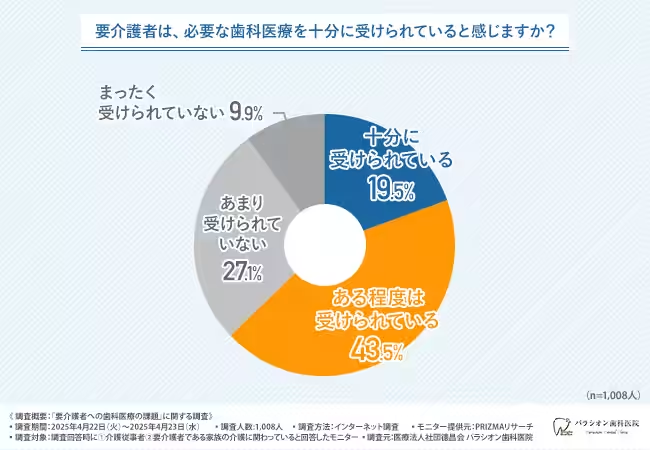
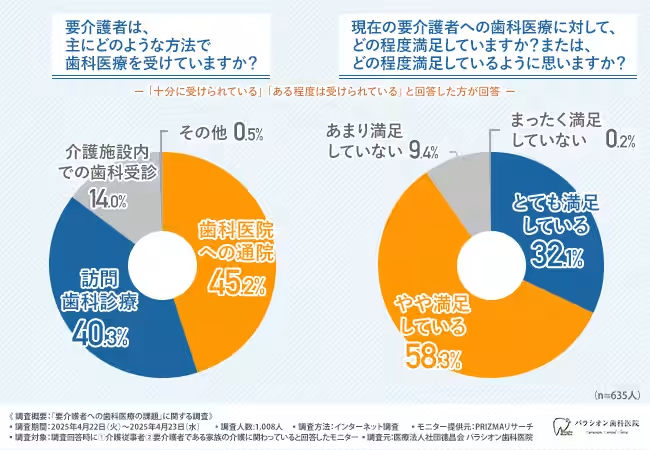
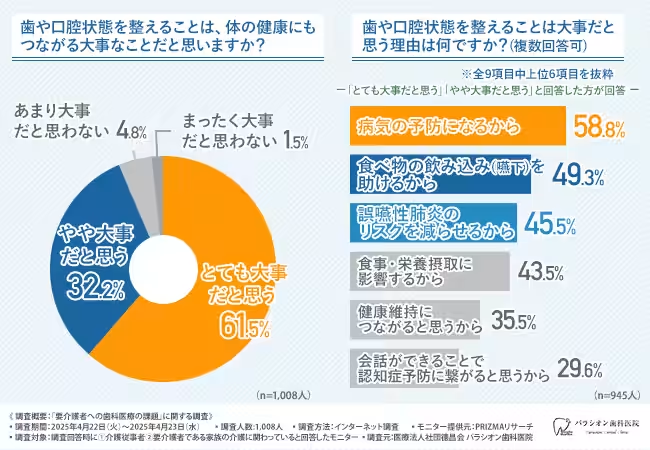
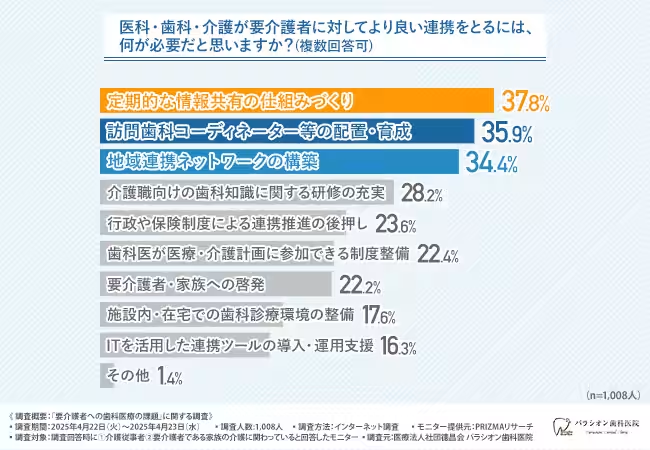
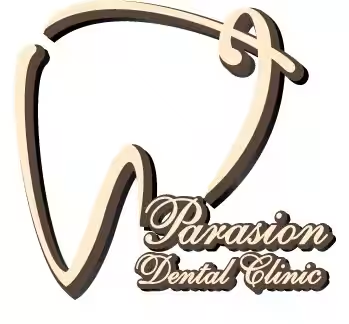

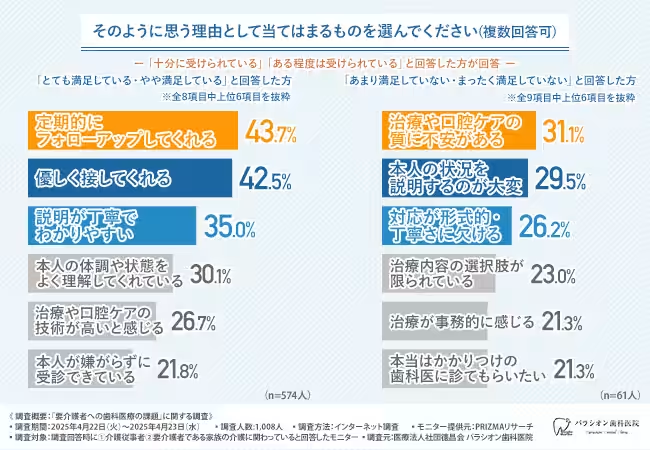
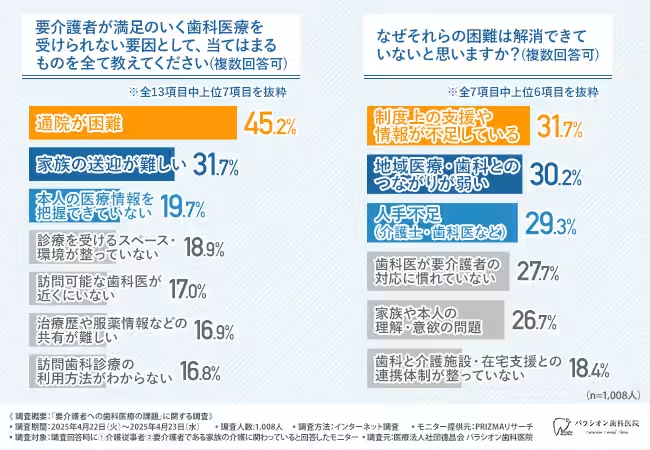
Topics Health)










【About Using Articles】
You can freely use the title and article content by linking to the page where the article is posted.
※ Images cannot be used.
【About Links】
Links are free to use.